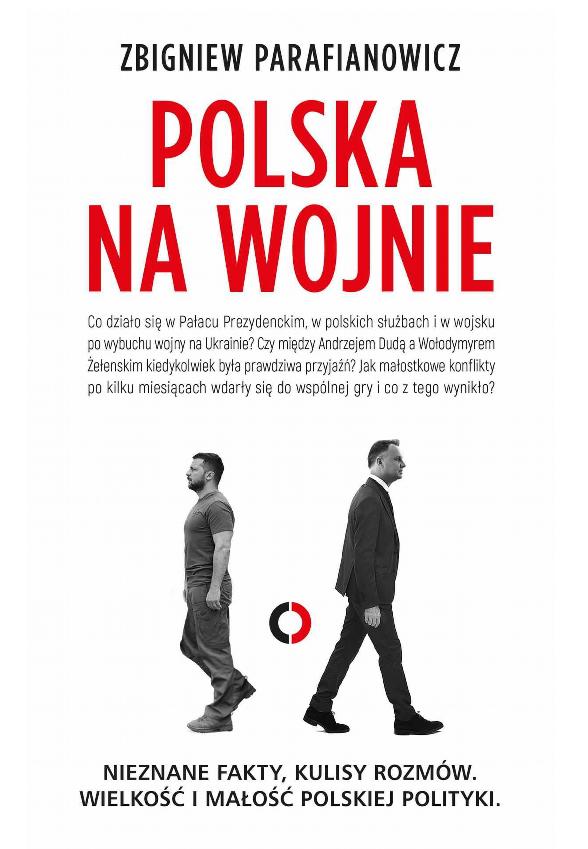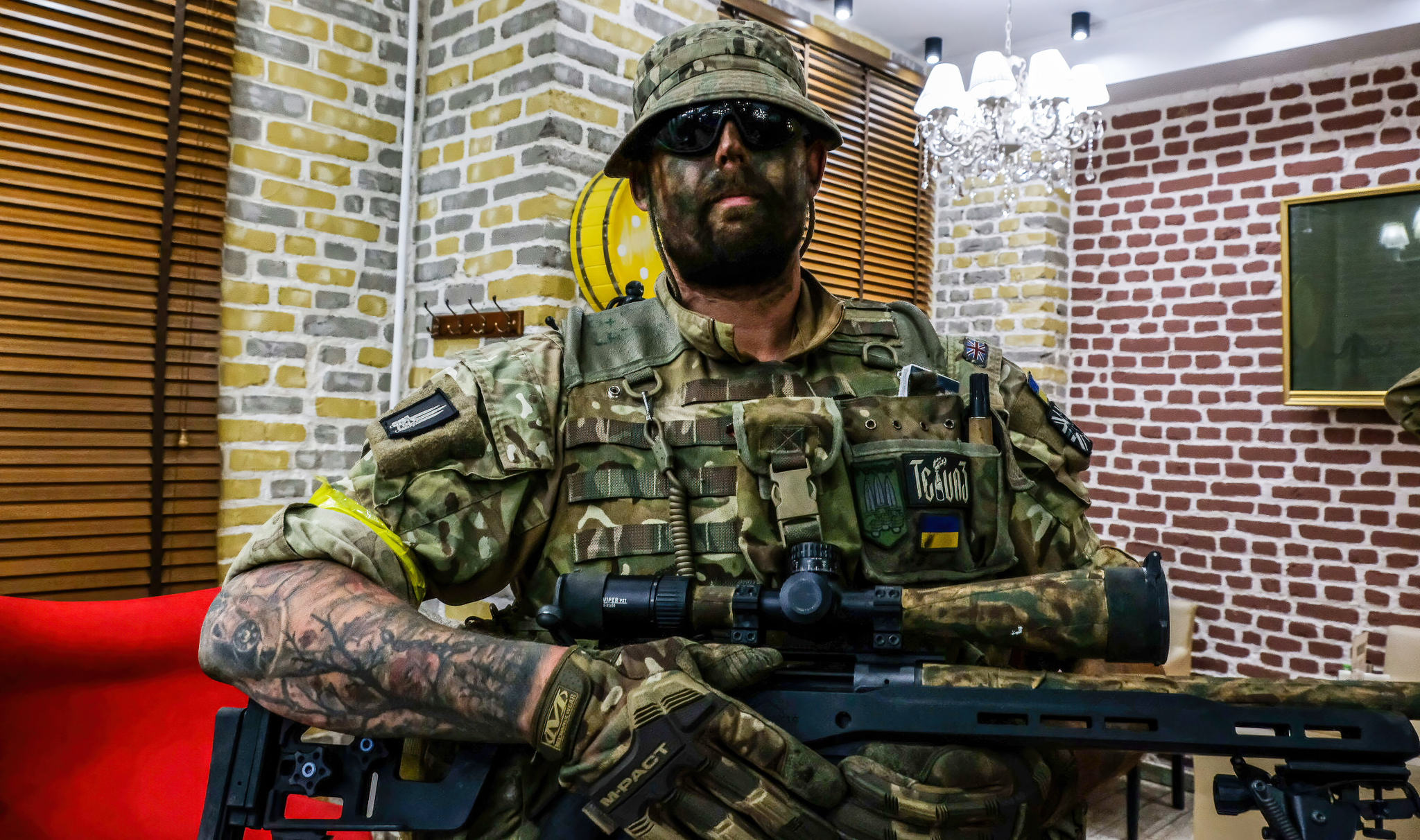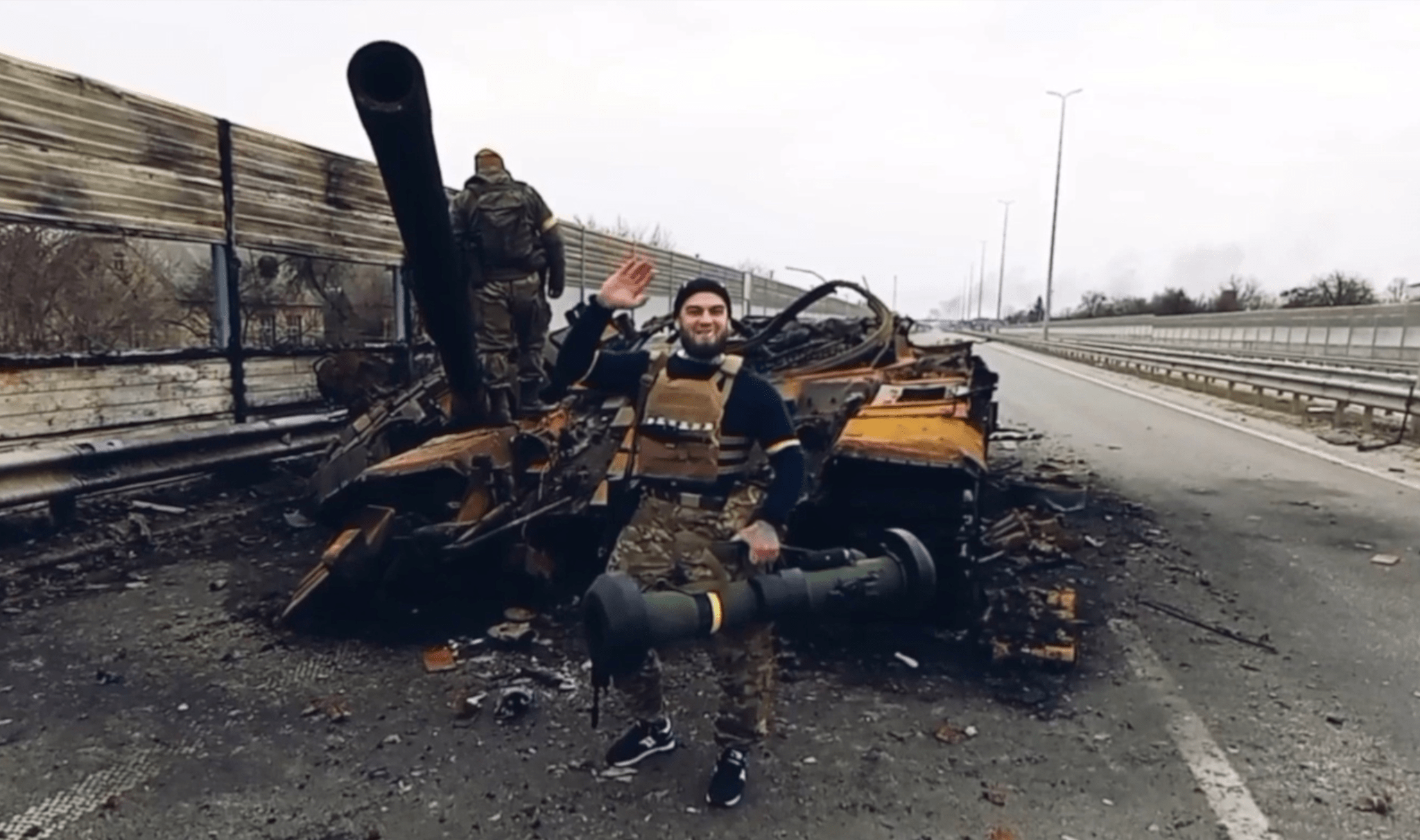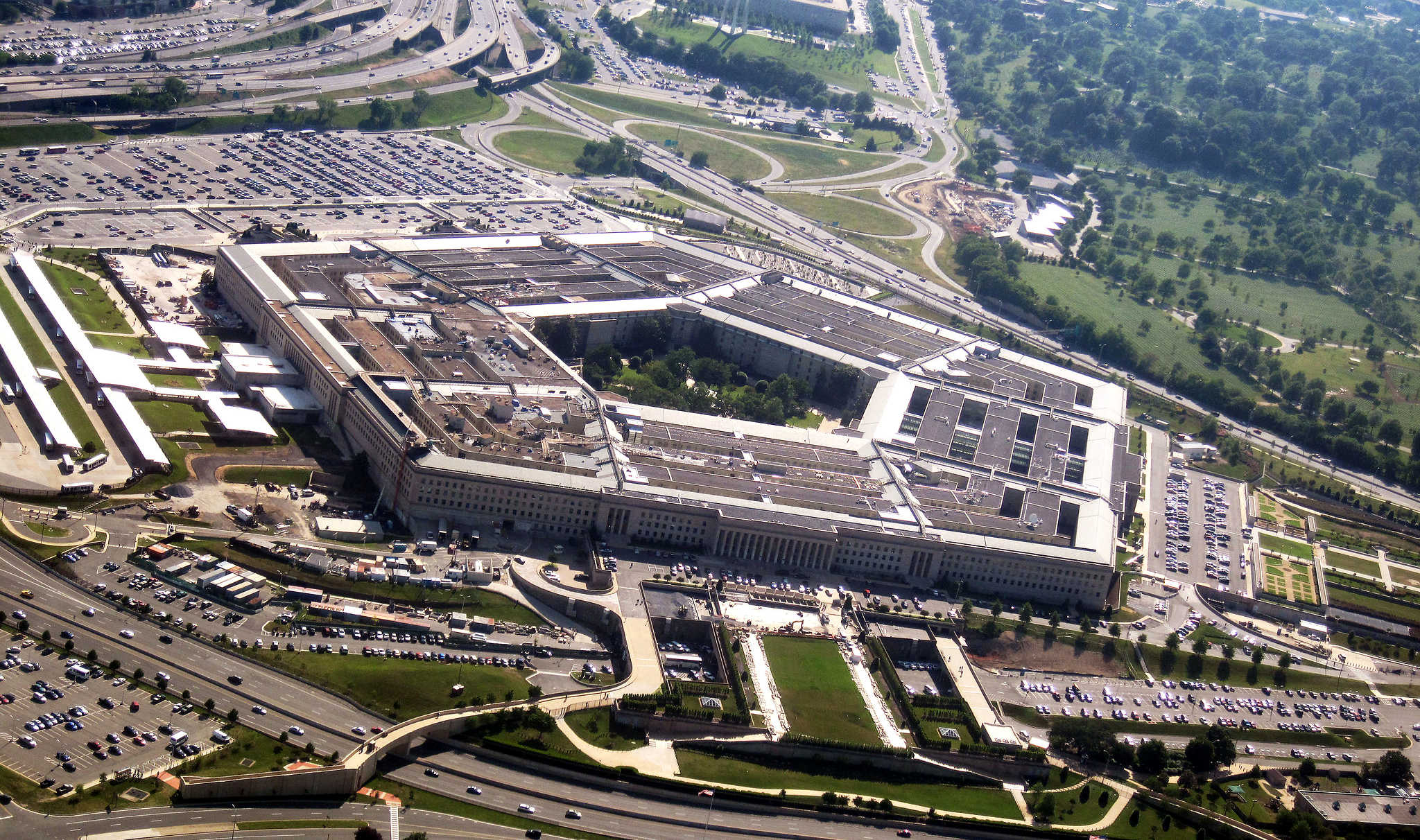Elite British special forces were operating on the ground in Ukraine weeks after Russia invaded last year. That is the allegation contained in a new book, Poland at War, by Polish journalist Zbigniew Parafianowicz.
The author is Ukraine correspondent for a daily newspaper in Warsaw and had access to political insiders and senior officials. He quotes an unnamed Polish government minister who claims to have run into British commandos in mid-March 2022 as he was travelling between Kyiv and the city of Zhytomyr.
The minister said: “It was a time when the Russians were still standing in Bucha, and the route was a grey zone. It was possible to run into Russians. We passed the last checkpoint. The Ukrainians told us that we continue at our own risk.
“Well, and who did we meet next? Ukrainian soldiers and… British special forces. Uniformed. With weapons. They moved with the Ukrainians in trucks and off-road vehicles with artillery radars. They were tracking targets. They were learning about this war. Such radar tracks where mortar or rocket shells fall and are fired.”

The remarks add to evidence that UK soldiers were secretly deployed to the warzone without parliament being told, and took part in an operation – not just training. In mid-April 2022, The Times reported: “British special forces have trained local troops in Kyiv for the first time since the war with Russia began”.
It said two Ukrainian battalions had received instruction over the previous fortnight in the use of “NLAWs, British-supplied anti-tank missiles that were delivered in February as the invasion was beginning.”
A year later, Declassified revealed that 50 elite British troops were in Ukraine, citing a leaked US intelligence file. The UK contingent was three times larger than any other ally. Among those who claimed to have been trained by UK special forces was Daniil Lyashuk, who had previously been convicted of torture by a Ukrainian court.
The Ministry of Defence (MoD) has only confirmed that soldiers have been in Ukraine since the invasion to protect the British embassy. Declassified understands separately that members of the Parachute Regiment were secretly deployed to Kyiv this year.
Asked to comment on the book’s claims, an MoD spokesperson told Declassified: “It is the longstanding policy of successive governments not to comment on speculation about Special Forces,” referring to a blanket no comment stance that Whitehall has operated since the late 1980s.
Stay behind
In Poland at War, Parafianowicz states that President Zelensky’s bodyguards were trained by Britain’s Special Air Service (SAS). He also quotes the unnamed Polish minister as saying: “On the first day of the war, we realised that there were [Polish] commandos – from the Lubliniec Military Commando Unit – in Brovary near Kyiv.
“They, together with the Americans and the British, had been building special forces for the Ukrainians since 2014, that is, since the annexation of Crimea and the war against separatism in the Donbass.”
Their presence caused concern that NATO soldiers could be caught up in the invasion, prompting various officials to request their withdrawal. However, a high ranking Polish officer said: “They, instead of returning to Poland on the first day of the war, went in the opposite direction. Among others, to Kharkiv, but also to cities in the Donbass, which the Ukrainians controlled. They cooperated with the British.”
Initially these NATO soldiers focused on helping with evacuations, however their presence in Kharkiv is potentially more significant. Declassified has reported how veterans of Ukraine’s neo-Nazi Azov movement were the first fighters in the city to receive British-supplied NLAWs.
Photos posted on social media showed “instructors from NATO countries” coaching men how to use the rocket launchers. The veterans formed an Azov spin-off unit known as Kraken, led by Konstantin Nemichev, a far-right politician.
The Polish officer added: “Later we worked out a formula for our presence in Ukraine…we were simply sent on paid leave. Politicians pretended not to see this.”
Another Polish minister is quoted in the book as saying that on one diplomatic trip to Ukraine, “the Americans asked us to bring their two wounded soldiers from Kyiv. They were there as civilians. But it is known what kind of civilians.
“These two wounded Americans were coming back on the same train that [deputy PM Jarosław] Kaczynski took with [PM Mateusz] Morawiecki. One was missing a leg. Doctors had to amputate it.”
UK special forces are not subject to oversight by any parliamentary committee or the Freedom of Information Act. A judge-led inquiry is currently investigating allegations the SAS killed 80 civilians and detainees in Afghanistan between 2010-13.
Meanwhile, Whitehall is attempting to suppress media reports that the SAS may deploy to Israel to help rescue British hostages held in Gaza. Government ministers have refused to answer questions about the claims when pressed in parliament by MPs Jeremy Corbyn and Kenny MacAskill.
Boris Johnson derailed peace talks
The revelations in Parafianowicz’s book come amid growing signs that Ukraine might have to enter peace talks with Russia.
President Zelensky expressed disappointment at the counter-offensive this month, saying: “We wanted faster results. From that perspective, unfortunately, we did not achieve the desired results. And this is a fact. There is not enough power to achieve the desired results faster.”
His counter-offensive, which was heavily backed by the US and UK, saw a significant rise in the number of Ukrainian soldiers killed, without any significant gains in territory. According to Foreign Affairs magazine, “Despite Ukraine’s much-heralded counteroffensive, Russia has actually gained more territory over the course of 2023 than Ukraine has.”
Such a set-back seems to have spurred some figures close to Zelensky to start speaking out about how the war has been waged.
Davyd Arakhamiia, who led Ukraine’s delegation at peace talks with Russia in March 2022, said Putin’s side was “prepared to end the war if we agreed to – as Finland once did – neutrality, and committed that we would not join NATO.”
Although Arakhamiia lacked confidence in Russia’s offer, his pessimism was compounded “when we returned from [the negotiations in] Istanbul, Boris Johnson came to Kyiv and said that we would not sign anything with them at all, and let’s just fight.”
His claim corroborates other reports that Johnson, who was then Britain’s Prime Minister, was instrumental in dissuading Ukraine from continuing negotiations with Russia shortly after the invasion.
Alba MP Kenny MacAskill tabled a parliamentary question about the incident, asking whether Johnson “advised Ukraine’s President Zelenskyy during his visit to Kyiv on 9 April 2022 to stop negotiations with Russia.”
Foreign minister Leo Docherty replied: “The former Prime Minister met President Zelenskyy in Kyiv on 9 April, where the leaders discussed support for Ukraine’s long-term survival as a free and democratic country, military aid, and economic assistance.
“The former Prime Minister reiterated that the UK will do everything in its power to support Ukraine’s fight against Russia’s brutal and unprovoked invasion and ensure its long term security and prosperity.”
Journalist Branko Marcetic, writing for Responsible Statecraft, has pointed out Johnson “himself confirmed, albeit not in so many words, in a phone call to French President Emmanuel Macron that he had urged Zelensky against peace.”
Johnson told Macron he had “shared his conviction that Ukraine would win, supported with the right level of defensive military assistance. He urged against any negotiations with Russia on terms that gave credence to the Kremlin’s false narrative for the invasion, but stressed that this was a decision for the Ukrainian government.”




